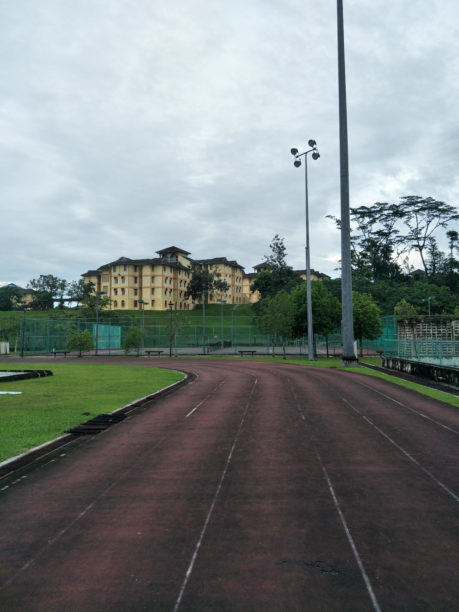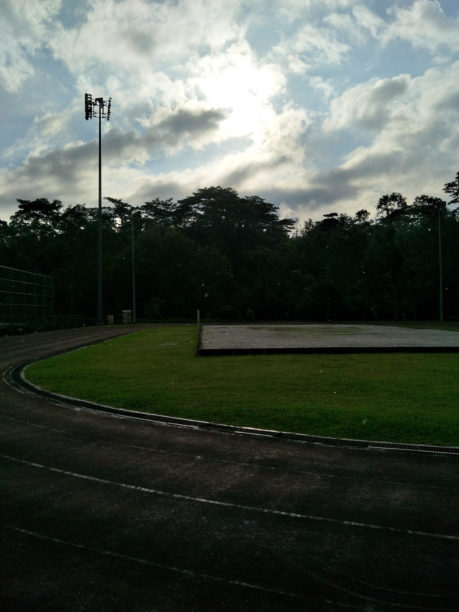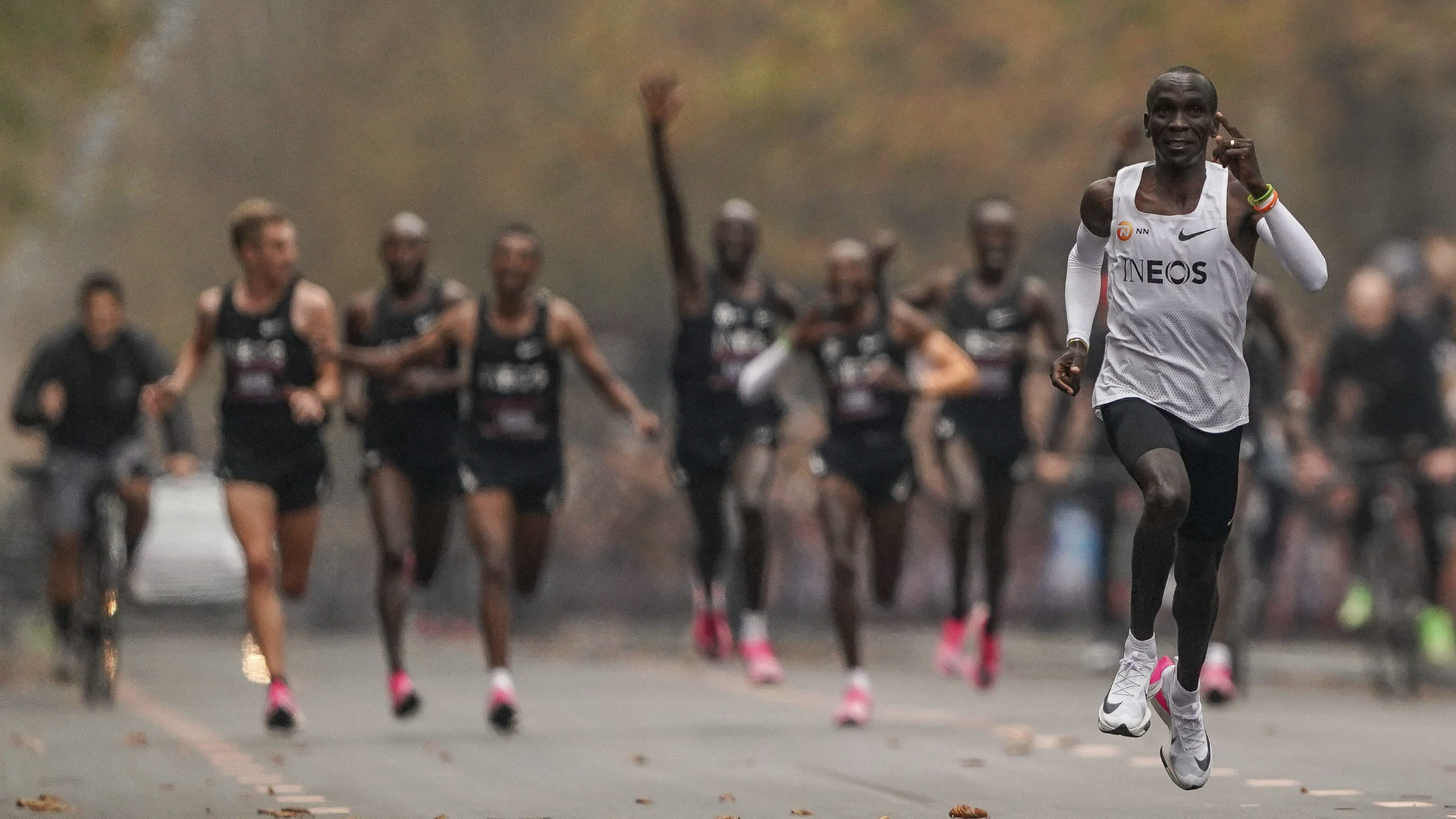When I was studying abroad in Malaysia at the beginning of 2017, I decided to pick up a hobby that was good for me physically and mentally, and running seemed to be the easiest and cheapest option. It didn’t require a subscription or much equipment. When I started off, I could only manage to walk, never quite run.
I began researching different ways to improve my running, and that’s how I stumbled on Eliud Kipchoge. Eliud was the top marathoner in the world, representing Kenya, my native country; he had won the Olympic Marathon in 2016, the Hamburg Marathon and the Chicago marathon.
He was then training for the first Nike Breaking2 project at Monza, Italy, running alongside two fellow African long-distance runners, the Eritrean Zersenay Tadese and the Ethiopian Lelisa Desisa. This was the first assisted marathon attempt to see if it was possible to run the full marathon in under two hours.
I sat down and did the calculations, and found that in order to do this, a runner would have to run every kilometre (KM) in 2 minutes, 50 seconds, and maintain that speed for the entire 42KM/26.2 miles. In those days, it took me an embarrassingly long time to just run a lap of 200 metres. I could not fathom how anyone thought they could run a full marathon in less than two hours. Kipchoge went on to run the race and missed the goal by 26 seconds. Observers realized during the run that he wouldn’t be able to make the time, but one of them commented, “No matter what happens, this man is amazing.”
I started reading up on Kipchoge, and found a man who seemed completely incapable of allowing failures to hold him back. In his debut marathon, he ran a half marathon in 59:25 minutes, making it one of the fastest debuts in history. Kipchoge has won 12 marathons out of the 13 he has run. After the Breaking2 project, he went on to win the London Marathon in 2017 and in 2018, and then won the Berlin Marathon and set the world record. Eliud was asked if he would attempt to run a marathon under two hours again, and he replied that it was simply a matter of when, rather than if.
I have never really been a sports person. I am neither athletic nor a fan of watching athletes, so it surprised me how deeply attached I grew to this particular marathoner. I think it was because of the man he was. He believed in doing your personal best. He did not think you should aim for breaking records; he believed simply in working hard and showing up to do your very best. Eliud is man who believes the truly powerful, the truly free are those who are disciplined over themselves, over their desires and passions.
I struggled with anxiety for years and when I started running, it was something like a last-ditch attempt to reclaim some of my sanity. As I mentioned, when I started I could only walk, and I reminded myself every day to walk 5KMs: no matter how long it took me, I would complete those 5KMs. You would think having a hero like Eliud would somehow make me ashamed of how mediocre my “running” time was but I soon realized that trying my best, not his or anyone else’s best, was the best way to emulate him.
 courtesy of the author
courtesy of the authorOver time I improved, and I took on his ethos of consistency and discipline. I also realized that I had to keep changing what my personal best was, and just as Kipchoge regularly set challenges for himself, I started setting challenges for myself too. My current one is to complete a 5KM run in 30 minutes.
My best time is 34:53 minutes. I had recently figured out that getting a good pace and maintaining it for the whole run with slow increases would get me further than rapid surges. That day was a normal run, I was going to do my best, but I really didn’t think it would be my best yet. I completed my first kilometer in 7:03 minutes. I remember being surprised at that speed, and the fact I wasn’t yet winded; I completed the next kilometer in 6:49 minutes. At this point, I laughed. I was better than before, and getting better. I couldn’t believe I was this person. The 3rd, 4th and 5th kilometers were completed in 6:43mins, 6:57mins and 6:50mins respectively. I had grown from a person who used to walk 5KM to a person who ran the entire way. I was better than I’d ever been, and I’d done it just by showing up to each run, and aiming for my best. It was an empty track field, but I cheered for myself on that day, I was proud of myself.
On the 12th of October 2019 Eliud Kipchoge hit the headlines once more when he kept to his word of “when not if” and ran a marathon in less than 2 hours.
As a young Kenyan, having Kenyan heroes is especially difficult in this current time. To have someone you admire that is achieving all their goals through self discipline and consistency is very rare. As Kenyans, we know that the fastest way to be rich and successful is to misuse public funds, be born into the right family or ingratiate yourself into the right crowd. We have men and women using up tenders and funds that are dedicated to hospitals and schools. Looking around at the people in government, it is hard and maybe even impossible to pick out a single person who has achieved what they have achieved through genuine hard work and consistency. There are few to admire and hope to one day emulate for who they are, rather than what they have.
I think that is why a lot of Kenyans feel so protective and warmed by all that Kipchoge is. He reminds us that not only are we not limited, but we are all capable of doing our very best. Each and every one of us. He has filled Kenyans with pride at a time when we so lack that feeling. I made a joke recently, that I had forgotten this feeling of holding my head up high when someone asks, “Are you Kenyan?” and being able to answer positively, because people like Kipchoge exist and remind the world and Kenyans themselves of the very best of Kenya.
 courtesy of the author
courtesy of the author





